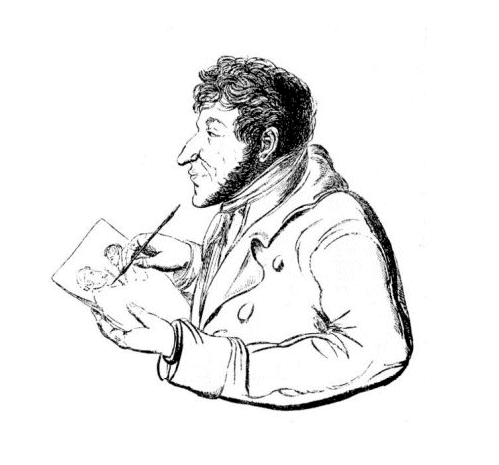-
 Frank Felber
Frank Felber

The provocateur
E. T. A. Hoffmann was a German writer of the late Romantic period. He also worked as a lawyer, composer, bandmaster, music critic, draftsman and caricaturist. His work shows approaches of today’s genre of fantasy and gothic horror, but at the same time it is a socio-critical work, personalizing fiction and the present in his narratives and bringing them into encounter as the protagonists of his stories.
He packaged his social criticism in caricatures and stories. With “Meister Floh” he took aim at the Prussian chief inspector Kamptz, who was an advocate of strict censorship. Freedom of thought, imagination and creativity was the highest good for E.T.A. Hoffmann.
In his stories there were gruesome witches, black and white magic, centuries before Harry Potter.
He influenced authors such as Edgar Allen Poe, Nikolai Gogol, Charles Dickens, and Charles Baudelaire and Dostoevsky. E.T.A. Hoffmann had a penchant for self-parody and was in some respects also a satirist, in the tradition of a Miguel Cervantes.
E.T.A. Hoffmann, however, was more. In his artistic versatility, at the same time, a psychological element appeared in everything. He was probably the first psychological man of letters. At the same time he is a philosopher and through his thought-provoking ideas and images in his literature, he makes a considerable contribution to the heated debates of his time, between the new empirical science and the older forms of natural philosophy and magic.
Born as Aquarius on 24.1.1776 with a conjunction of the Sun with the fixed star Altair and Pluto/Pythia, he is historically not only one of the inventors of science fiction (Aquarius Sun) and Gothic novels (with Pluto/Altair/Pythia) but was also a provocateur with his Aquarius Sun. Mercury in conjunction to the Sun into trine to Jupiter/Uranus gave his work genius and a unique selling point in its uniqueness. He himself does not seem like a dark spirit in the clutches of evil, but in a way he played with the dark forces to expand people’s imaginations and yet never losing touch with reality.

Radix E.T.A. Hoffmann
Historical parallelism of the date
Gunnar Kaiser published his last book, “The Cult. On the Virality of Evil,” on the same day, Jan. 24, 2022, albeit 246 years later. Are we dealing here with a coincidental historical parallelism? Isn’t Gunnar Kaiser just as much a philosopher, provocateur and someone who intervenes in the heated debates of our time with his questions and food for thought?

Source: Wikimedia / Youtube channel Gunnar Kaiser
E.T.A. Hoffmann / Gunnar Kaiser
The term “virality of evil” refers to the targeted triggering of word of mouth to harm individuals. Is it his response to the fact that the virality of evil also feeds on his person, among other things?
Gunnar Kaiser provokes with questions that lead directly to the answer, as the truth radiates from his question. He is a border crosser as E.T.A. Hoffmann was in his own way, in that through his narratives, he poses questions and images that answer each other in their contrapunction.
Here, too, I ask myself whether Gunnar Kaiser and E.T.A. Hoffmann are the same spirit that provokes us in his book with the question, “Why do good people do evil?”
Do good people actually do evil, or are the people who do it perhaps evil? That’s what I wonder when he asks this question of his reader. Isn’t stupidity also a form of wickedness? What finally causes man to refuse to want to know the truth and to repress or suppress facts that displease him? Is it not selfishness and ultimately our wickedness that prefer error and lies in order to live a comfortable conformist life? In any case, it is undoubtedly not virtues that cause man to do evil, but as I see it, he submits to evil.
